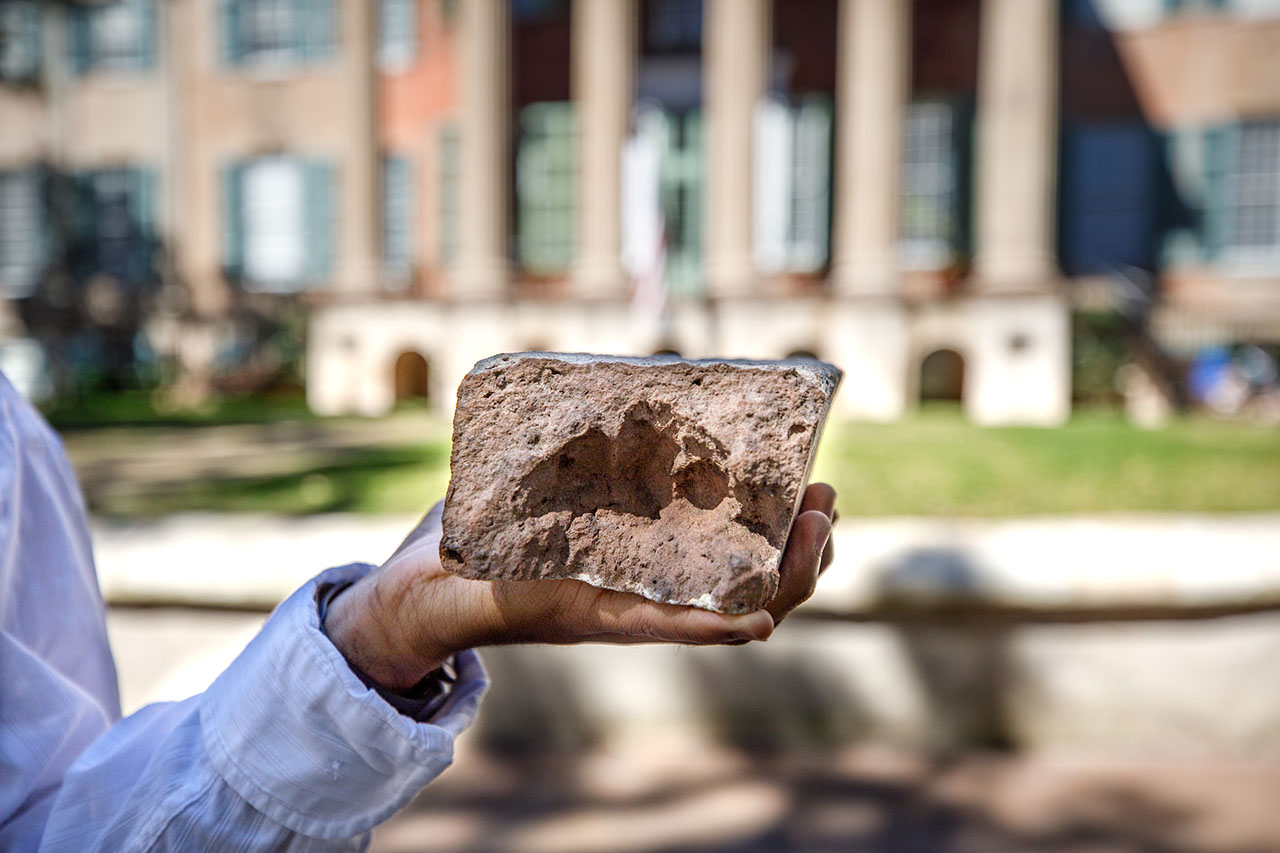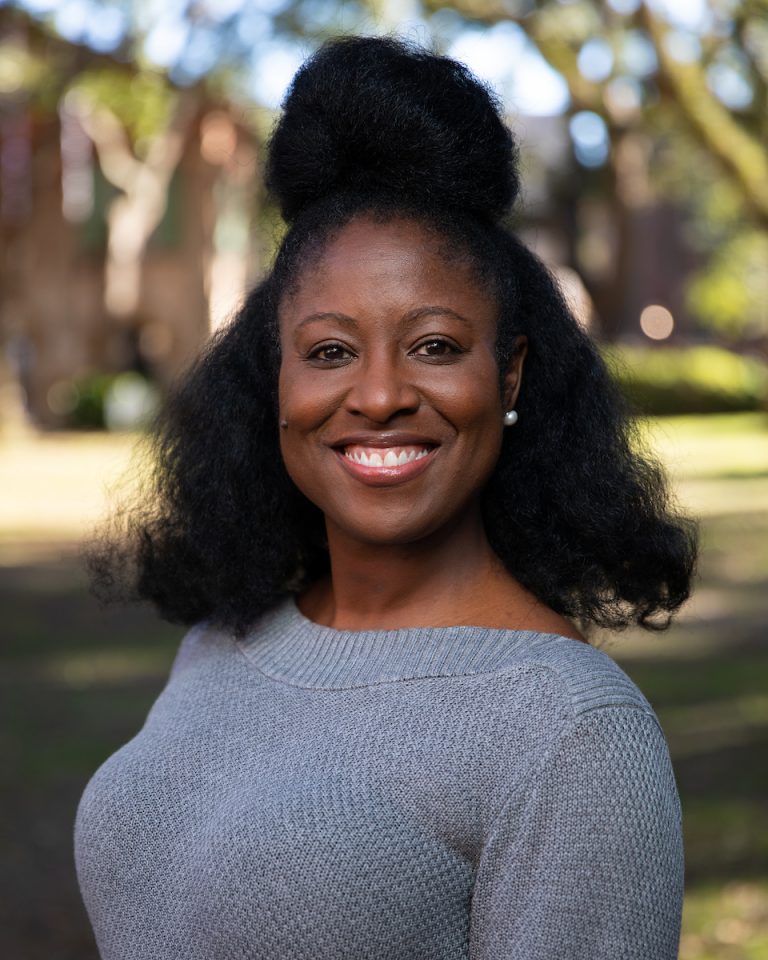New documentary explores College of Charleston’s role in slavery
March 11, 2021
A brick from the College of Charleston with a full fingers indented into the interior brick by the brickmaker most likely a person of color who was a slave.
If These Walls Could Talk, a new documentary about the history of the College of Charleston, sets ablaze a path for healthy reconciliation within the College community by bringing attention to the labor and ingenuity of enslaved Africans who were tasked with building the first municipal college in the United States.
 Spearheaded by Charissa Owens, director of diversity education and training in the Office of Institutional Diversity (OID), and written and directed by Michael T. Owens, adjunct professor of English, the 45-minute documentary features the research and expertise of College faculty, staff and students. In a series of conversations with professors, the film offers a range of perspectives on the College’s complex history.
Spearheaded by Charissa Owens, director of diversity education and training in the Office of Institutional Diversity (OID), and written and directed by Michael T. Owens, adjunct professor of English, the 45-minute documentary features the research and expertise of College faculty, staff and students. In a series of conversations with professors, the film offers a range of perspectives on the College’s complex history.
“Each participant spoke eagerly and with great conviction,” says Michael Owens. “This helped us create an informative, but also engaging narrative that hopefully does this sensitive topic justice.”
“If these walls could talk, I think they would tell a story that many of us are not prepared to hear,” says Shannon Eaves, assistant professor of history. “When we look at the earliest buildings on campus, they would not stand if it were not for slave labor.”
A debut screening of If These Walls Could Talk will take place on Friday, March 12, 2021, at The Bend, an outdoor venue on the Ashley River in North Charleston. Guests are invited to watch the documentary from the socially distanced safety of their vehicles. Gates will open at 6:15 p.m. for the 7 p.m. showing.This is a free event, but one ticket per vehicle will be required for entry. Tickets are available beginning on Friday, March 5, at 10 a.m.
The documentary will be shown outdoors in the Cistern Yard for students on Saturday, March 13, 2021. Check-in begins at 6:15 p.m. and closes at 6:50 p.m. No late admittance will be permitted. After check-in, attendees will be able to select a designated space to view the film. Students should bring their own seating. Masks and social distancing will be enforced. One ticket per student is required. Student tickets will be available beginning on Monday, March 8, at 10 a.m.
Then on March 18, 2021, at 5:30 p.m., a 45-minute virtual conversation will be held to discuss the making of the film and its role in the national conversation of how historic U.S. colleges are addressing their ties to slavery. The virtual event will be held on Microsoft Teams and is open to the public.
“The College of Charleston community is spearheading actions that will recognize and honor the role of enslaved Africans and African Americans in the College’s founding,” says Charissa Owens. “We are taking steps to make the campus itself a memorial, where signs on historical buildings will acknowledge the laborers who built the buildings.”
Some of these steps include new scholarships and programs, such as the 1967 Legacy Program, which are being developed to support African and African American students academically as well as acknowledge their heritage as an inseparable part of the College’s history and future. The College is also examining opportunities to make race, equity and inclusion a part of the curriculum while creating sustainable, culturally affirming spaces for employees from historically marginalized groups.
“I don’t think we can fix the past because the past is the past, but we can look into the future and make sure that we resolve the effect of the past,” says President Andrew T. Hsu.
“This project makes me feel proud because although it’s a sad and a tragic history, the fact that we’re able to do this research and share it with others and not feel like we have to hide it means we’re giving a voice to people who didn’t have a voice and I’m very proud of that,” says Keyasia Pride ’20, student researcher and English major, who assisted with the film.
And with that new perspective in mind, the goal is to elevate and understand all aspects of the College’s history.
“While the film only scratches the surface of the Black experience, it has refreshed our social responsibility to embrace Black history as OUR history, to amplify the voices and experiences of the Black community, to value the impact of their achievements,” says Charissa Owens.
If These Walls Could Talk will be available online with closed captioning after the event.













